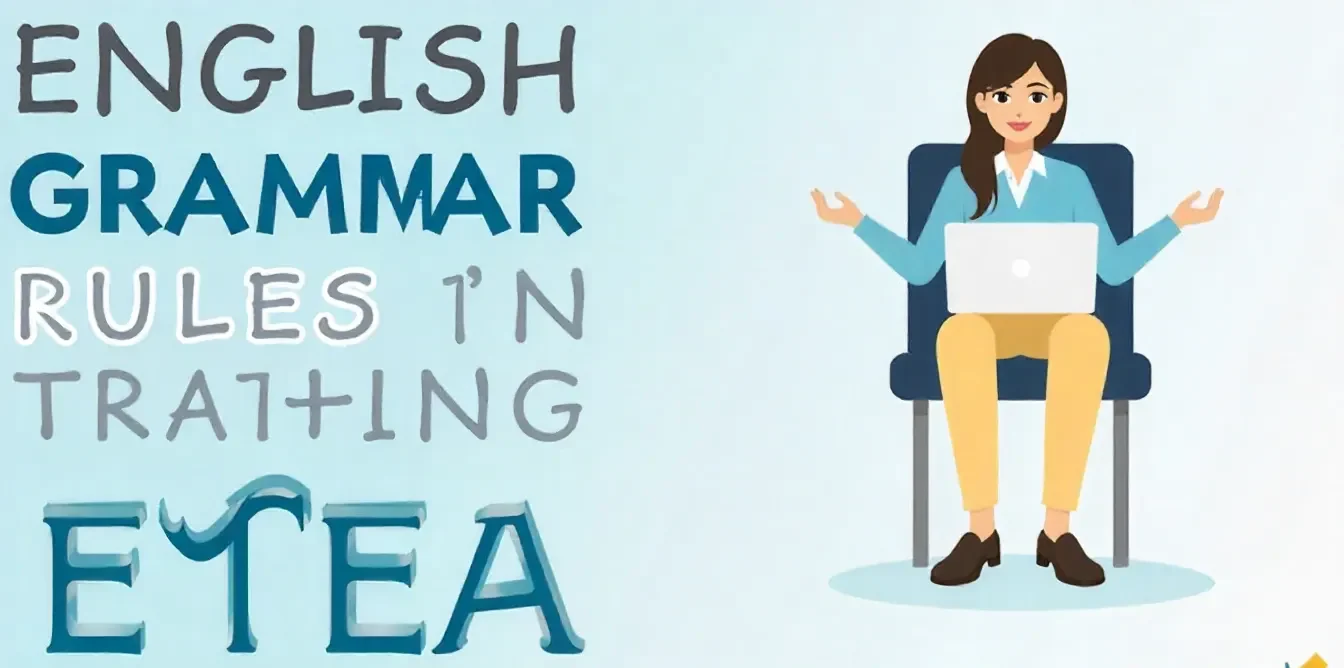🧠 Why Grammar Is a Game-Changer in ETEA
When preparing for the ETEA entry test or etea teaching posts in kpk, most students focus heavily on science subjects—Biology, Chemistry, Physics. But English grammar is often overlooked, even though it contributes significantly to your overall score. The English section tests your understanding of grammar, vocabulary, sentence structure, and comprehension. And unlike science questions, grammar MCQs can be answered quickly—if you know the rules.
This guide covers essential grammar rules, examples, and tips tailored for ETEA aspirants. Whether you’re aiming for medical or engineering admission, mastering these rules will give you a competitive edge.
📚 1. Parts of Speech – The Grammar Foundation
Understanding the eight parts of speech is the first step in mastering English grammar:
🔹 Noun
Names a person, place, thing, or idea. Example: “Tamworth is a peaceful town.”
🔹 Pronoun
Replaces a noun to avoid repetition. Example: “She is preparing for ETEA.”
🔹 Verb
Shows action or state of being. Example: “He studies every night.”
🔹 Adjective
Describes a noun. Example: “It was a difficult question.”
🔹 Adverb
Describes a verb, adjective, or another adverb. Example: “She answered quickly.”
🔹 Preposition
Shows relationship between words. Example: “The book is on the table.”
🔹 Conjunction
Connects words or clauses. Example: “He studied hard but failed.”
🔹 Interjection
Expresses emotion. Example: “Wow! That was easy.”
ETEA Tip: MCQs often ask you to identify the correct part of speech or choose the right word to complete a sentence.
⏳ 2. Tenses – Mastering Time in Language
Tenses are frequently tested in ETEA English MCQs. You must understand how to use them correctly:
🔹 Present Tense
- Simple Present: “He writes daily.”
- Present Continuous: “She is studying now.”
- Present Perfect: “They have completed the task.”
🔹 Past Tense
- Simple Past: “I visited the museum.”
- Past Continuous: “He was reading a book.”
- Past Perfect: “She had left before I arrived.”
🔹 Future Tense
- Simple Future: “They will attend the seminar.”
- Future Perfect: “He will have finished by 5 PM.”
ETEA Tip: Pay attention to irregular verbs and tense shifts in sentence correction MCQs.
🧩 3. Subject-Verb Agreement – A Common Trap
This rule ensures that the subject and verb match in number (singular/plural):
- “He walks to school.” ✅
- “They walk to school.” ✅
- “He walk to school.” ❌
Common Mistakes:
- Collective nouns: “The team is winning.” (not “are”)
- Indefinite pronouns: “Everyone is ready.” (not “are”)
- Compound subjects: “Ali and Sara are going.”
ETEA Tip: MCQs often separate the subject and verb with long phrases to confuse you.
🔄 4. Active and Passive Voice – Know the Shift
Understanding how to convert between active and passive voice is essential:
- Active: “Ali wrote the letter.”
- Passive: “The letter was written by Ali.”
Rules:
- Identify the object of the active sentence
- Use correct form of “to be” + past participle
- Maintain tense consistency
ETEA Tip: Passive voice MCQs often test your ability to retain meaning while changing structure.
🗣️ 5. Direct and Indirect Speech – Report with Accuracy
ETEA often tests your ability to convert direct speech into indirect speech:
- Direct: He said, “I am tired.”
- Indirect: He said that he was tired.
Key Rules:
- Change pronouns appropriately
- Adjust verb tense (usually one step back)
- Remove quotation marks and use “that”
ETEA Tip: Watch for time expressions like “today” → “that day,” “now” → “then”
📍 6. Prepositions – Small Words, Big Impact
Prepositions show relationships in time, place, and direction:
- Time: “He arrived at 5 PM.”
- Place: “The book is on the table.”
- Direction: “She walked into the room.”
Common Confusions:
- “In” vs “On” vs “At”
- “Between” vs “Among”
- “By” vs “With”
ETEA Tip: Preposition MCQs often test idiomatic usage like “interested in,” “good at,” “afraid of.”
✂️ 7. Sentence Correction – Spot the Error
This is one of the most frequent question types in ETEA English:
- “He don’t like tea.” ❌
- “He doesn’t like tea.” ✅
What to Watch For:
- Verb form errors
- Article misuse (a/an/the)
- Pronoun agreement
- Word order
ETEA Tip: Read the sentence aloud—errors often “sound wrong” when spoken.
🔤 8. Articles – A, An, The
Articles define nouns and are often misused:
- “A”: Used before consonant sounds “A university” (sounds like “you-niversity”)
- “An”: Used before vowel sounds “An hour” (silent “h”)
- “The”: Used for specific nouns “The sun rises in the east.”
ETEA Tip: MCQs often test article usage with abstract nouns and proper nouns.
🧮 9. Modals – Express Possibility, Obligation, Permission
Modals are auxiliary verbs like can, could, may, might, must, should, will, would.
- “You must study for ETEA.” (obligation)
- “He might come tomorrow.” (possibility)
- “Can I borrow your notes?” (permission)
ETEA Tip: Modals are often tested in fill-in-the-blank MCQs.
📝 10. Punctuation – Don’t Ignore It
Punctuation affects meaning and clarity:
- Comma (,): Separates items or clauses
- Full stop (.): Ends a sentence
- Question mark (?): Indicates a question
- Apostrophe (’): Shows possession or contraction “Ali’s book”, “It’s raining”
ETEA Tip: Sentence correction MCQs often hide punctuation errors.
🧠 11. Common Confusing Words
ETEA loves to test homophones and confusing word pairs:
- Accept vs Except
- Effect vs Affect
- Principal vs Principle
- Lose vs Loose
- Their vs There vs They’re
ETEA Tip: Create flashcards for these and quiz yourself regularly.
📈 How to Practice Grammar for ETEA
✅ Use Past Papers
Solve ETEA English MCQs from previous years to understand patterns.
✅ Make Flashcards
Create cards for rules, exceptions, and confusing word pairs.
✅ Take Online Quizzes
Use platforms like Quizlet or to test your grammar knowledge.
✅ Read English Daily
Newspapers, blogs, and articles help reinforce grammar in context.
✅ Join Study Groups
Discuss grammar rules with peers to reinforce learning.
🧪 Sample MCQs for Practice
1. Choose the correct sentence: A) He don’t like mangoes. B) He doesn’t like mangoes. ✅
2. Identify the part of speech of “quickly” in the sentence “She answered quickly.” A) Verb B) Adjective C) Adverb ✅
3. Convert to passive voice: “Ali cleaned the room.” → “The room was cleaned by Ali.” ✅
4. Choose the correct preposition: “He is good ___ mathematics.” A) in B) at ✅ C) on
🏁 Final Thoughts: Grammar Is Your Secret Weapon
English grammar may seem minor compared to science subjects, but it’s a high-scoring section if you prepare smartly. By mastering the core rules—like tenses, subject-verb agreement, voice, speech, and sentence structure—you unlock the ability to answer questions quickly and accurately. Unlike numerical problems or lengthy calculations, grammar MCQs often take seconds to solve once you understand the logic behind them.
Strong grammar skills also improve your comprehension, writing, and communication—skills that go far beyond the ETEA exam. Whether you’re applying for medical college, engineering programs, or government jobs, clear and correct English gives you an edge in interviews, applications, and academic success.
So don’t treat grammar as an afterthought. Make it part of your daily prep. Practice with past papers, take quizzes, and read actively. The more you engage with the language, the more intuitive grammar becomes.
And remember: every correct answer in the English section is a step closer to your dream career. Let grammar be your secret weapon—and use it wisely.

